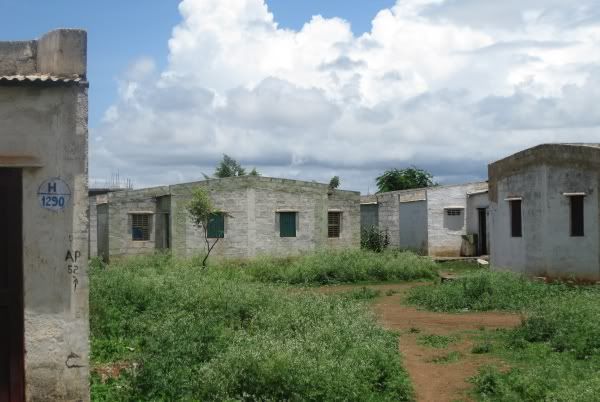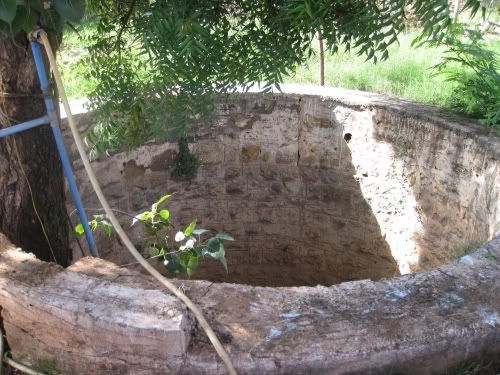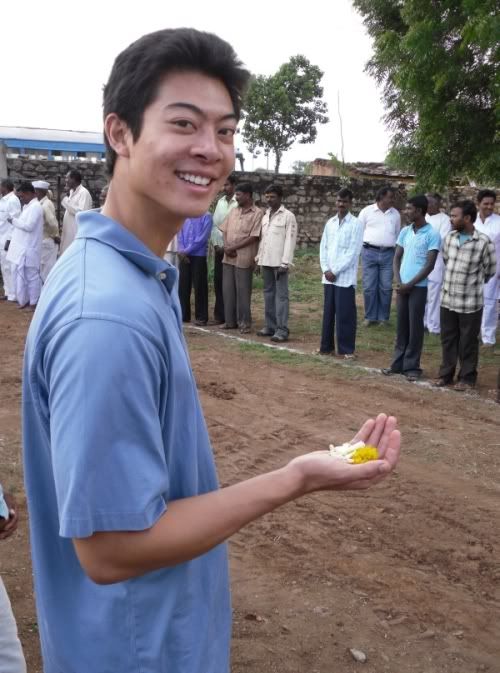What if there is an opportunity to sell purified drinking water to an entire needy family of five for a measly $0.04 a day?
What if this opportunity would initially serve hundreds of households, generate significant profits, and thus eventually could scale to bring clean water to tens, if not hundreds, of thousands of individuals?
On practically the first day I landed in India, just eight weeks ago, I got connected to a company that takes the "what if" out of these questions. Sam Reid, a USC MBA alumnus and the Asia Portfolio Manager of the Grassroots Business Fund, sent me an e-mail after I invited him to read this CTB blog, "I just finished due diligence on a company focused on setting up franchised Reverse Osmosis water purification plants in rural India..." My curiosity picqued.
After a few introductory e-mails from Sam--as they say--the rest was history. Upon arriving in Hubli, I began furiously exchanging e-mails with Deepinder Mohan, the visionary CEO of Environmental Planning Group Limited (EPGL). EPGL currently operates over 35 community-level R/O water plants in North India (Punjab, Delhi, and Rajasthan) and is the recipient of grants from reputable funders like Acumen Fund. EPGL takes an advanced and proven water technology traditionally limited to the rich (think bottled water), and makes it financially and structurally accessible to the poor who could benefit from this technology the most.
With my team's very broad project goal of "improving needy people's health through improvements in sanitation and water quality", I was very open and extremely excited to explore any potential collaborations with EPGL. So I quickly dove in. I worked closely with Deepinder and wrote a mini business plan and created proforma statements to test financial feasibility.
Initially, the intention was to launch a R/O plant in S.M. Krishna Nagar: the target slum community in Hubli from last summer's project. However, during a meeting with Jabashetti, Director of the Water Literacy Foundation and an invaluable contributor to our project, I soon discovered that such a plant was not the appropriate water technology that could help this community; the handful of borewells--from which R/O plants got input water--were drying up and were thus necessarily tightly controlled by the Hubli-Dharwad Municipal Corporation (government entity).
Not willing to toss the R/O plant idea in the can, I asked Jabashetti a simple question that changed everything, "Well, do you know of any nearby community that could benefit from such a system?"
Almost instantly, Jabashetti excitedly replied, "Gadag! Water quality problems are abundant in Gadag. Gadag has so many borewells available. And, I know an influential Swamiji who will listen to me. If I say to bring a R/O system, there will be a R/O system".
A few days later, I was on the bus to Gadag to meet and discuss the plant opportunity with the Swamiji, a local spiritual leader as well as environmentalist who founded the KNS Foundation responsible for recently planting over 300,000 trees! Seated next to me on the bumpy hour-long ride was my friend Dan, another Innovator from a different USC Global Impact project who kindly agreed to be the "token white guy" for the day. Although my Chinese/Filipino looks caught eyes in South India, Dan's fair skin could catch even more, and more importantly establish instant credibility in the community.
To make a long story short, after hours of ceremonies and such, we eventually sat down in a quiet room with Shivakumara Swamiji and Jabashetti and received his buy-in. He could provide his private borewell, electricity, and handle sales and operations. We jumped back on the bus to Hubli: mission accomplished.
Over the next week or so, I helped facilitate negotiations then agreement of terms between Deepinder and Shivakumara Swamiji. Originally, we aimed to create a partnership scheme whereby EPGL could front some start-up capital, share a percentage of sales, and cover certain expenses. However, eventually discussions led to following a different more simplified and traditional scheme whereby EPGL would simply serve as a plant supplier and maintenance provider, and KNS Foundation would retain complete ownership.
* * *
This takes us up to where we are today. With two key players--manufacturer and implementer--secured and aligned, there is just one last player to bring into the game: the financial funder. Currently, Jabashetti and I are seeking an organization/individual interested in helping to plant this single pilot R/O water plant that could eventually germinate dozens more throughout Gadag and bring clean water to tens, or even hundreds, or thousands of people. Gadag is home to a major fluorosis problem with debilitating dental and skeletal effects on those affected. This problem could be significantly mitigated by establishing community-level R/O plants at just a fraction of the 300-450 borewells throughout Gadag's many villages.
All we are requesting from the financial funder is to cover the start-up costs (~INR 400,000, ~$8,000) via an interest-free loan guaranteed full reimbursement within 18 months.
And thus, my last call is this: if you, someone in your network, or an organization you know may be interested in acting as a financial funder to this project, please shoot me an e-mail (bchang20@gmail.com) so we can connect and discuss things in greater detail.
The finish line is close, but we are not there yet. We have only two more weeks to complete this final leg of the race, but we will fight on, and we will finish.
-Bronson






No comments:
Post a Comment